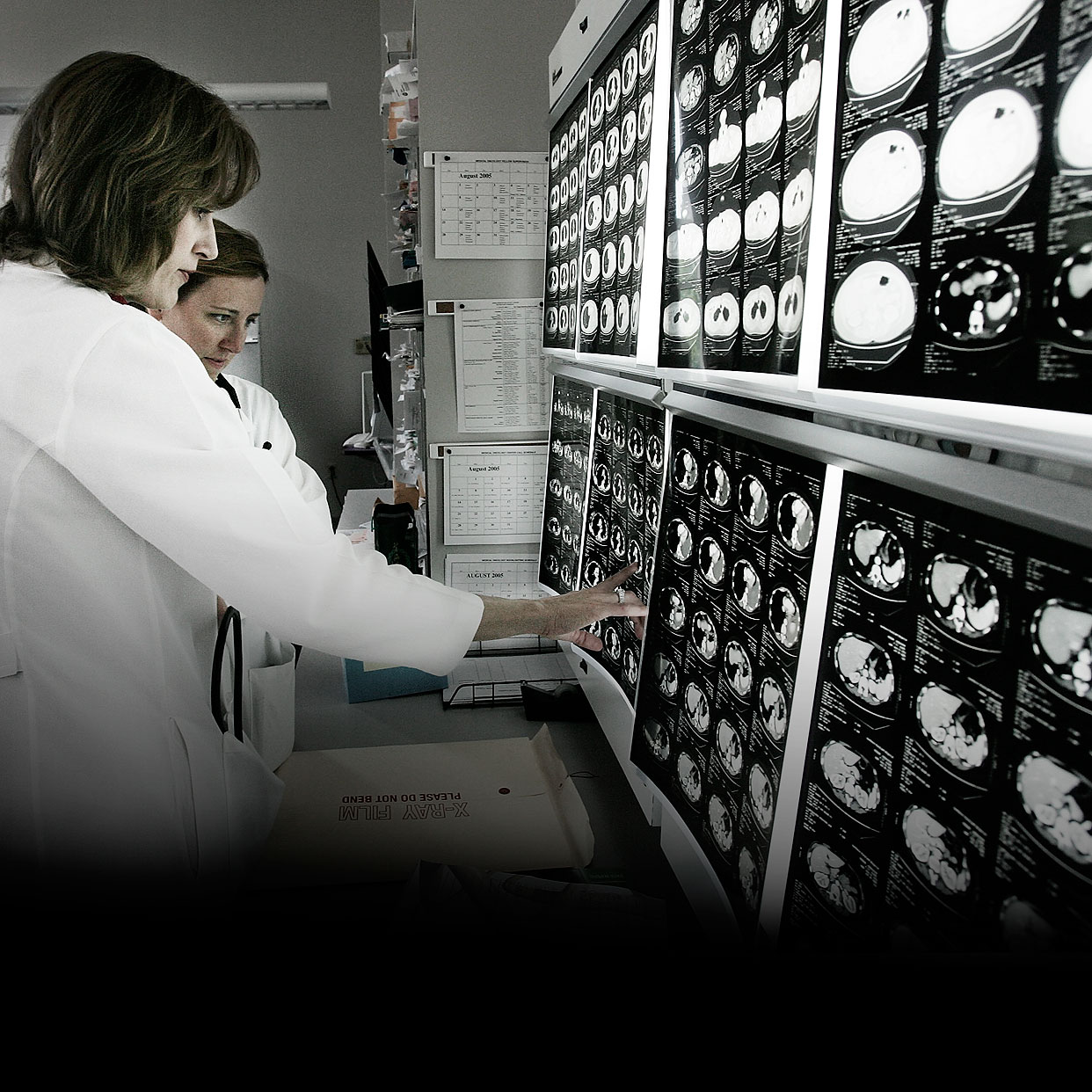Are cancer treatment waiting times putting patients at risk?
NHS trusts failing to meet 62-day target, with patients facing wait of up to 18 months

A free daily email with the biggest news stories of the day – and the best features from TheWeek.com
You are now subscribed
Your newsletter sign-up was successful
The lives of an increasing number of cancer patients are being put at risk by long waits for treatment, according to newly obtained statistics.
At least 85% of cancer patients in England, and 95% in the rest of Britain, are supposed to start treatment within 62 days of their first referral from a GP, “but nowhere in the UK has achieved this for more than two years”, says the BBC.
Figures obtained by shadow health secretary Jonathan Ashworth suggest that the problem is getting worse.
The Week
Escape your echo chamber. Get the facts behind the news, plus analysis from multiple perspectives.

Sign up for The Week's Free Newsletters
From our morning news briefing to a weekly Good News Newsletter, get the best of The Week delivered directly to your inbox.
From our morning news briefing to a weekly Good News Newsletter, get the best of The Week delivered directly to your inbox.
Between 2010 and 2017, the number of cancer patients in England who did not start treatment within the 62-day target almost doubled, from 13,354 to 26,693.
The statistics indicate that “one in six patients is now waiting longer than they should”, says the broadcaster.
The most extreme case recorded was that of a patient who waited 541 days - almost 18 months - from initial referral to first definitive treatment.
Other key benchmarks are also falling further behind target. Patients who receive an urgent referral are supposed to see a consultant within two weeks, and treatment should begin no later than 31 days after a definitive diagnosis, says The Guardian.
A free daily email with the biggest news stories of the day – and the best features from TheWeek.com
“In both cases, as with the 62 days target, two-thirds of trusts had lengthier longest waits last year than in 2010,” the newspaper reports.
Why are so many treatments being delayed?
One obvious factor in the increased strain on NHS cancer services is a steep rise in demand.
The Department of Health and Social Care says that there has been a 115% increase in cancer referrals since 2010, adding that survival rates have “improved significantly” in that time despite the additional pressure.
However, Cancer Research UK policy manager Sara Bainbridge told The Guardian that the problem is being exacerbated by understaffing of crucial services.
“Part of the reason why hospitals are struggling to meet the target is because NHS diagnostic services are short-staffed,” she said.
The staffing problem also affects cancer treatment, “with hospitals reporting problems recruiting cancer doctors and chemotherapy nurses in particular”, the BBC reports.
Are the delays endangering patients?
Labour MP Ashworth says that the “astonishing” delays “are putting lives at risk”.
The impact of delayed treatment on outcomes is difficult to quantify, but early diagnosis is key to giving patients the best chance to beat the disease.
A 2015 Office for National Statistics report into cancer mortality found that “survival of patients with specific types of cancer, especially lung and ovarian, [is] substantially lower when diagnosed at a later stage compared to patients diagnosed at an early stage”.
In addition to the physical dangers, delays to treatment may also harm a patient’s mental well-being.
“Long waits to start cancer treatment can make an already difficult time even more distressing and unbearable,” says Fran Woodard, of Macmillan Cancer Support.
A recent study published in the British Medical Journal found that cancer patients are four times more likely than the average person to experience depression, which in turn is associated with poorer outcomes.
-
 The environmental cost of GLP-1s
The environmental cost of GLP-1sThe explainer Producing the drugs is a dirty process
-
 Greenland’s capital becomes ground zero for the country’s diplomatic straits
Greenland’s capital becomes ground zero for the country’s diplomatic straitsIN THE SPOTLIGHT A flurry of new consular activity in Nuuk shows how important Greenland has become to Europeans’ anxiety about American imperialism
-
 ‘This is something that happens all too often’
‘This is something that happens all too often’Instant Opinion Opinion, comment and editorials of the day
-
 A real head scratcher: how scabies returned to the UK
A real head scratcher: how scabies returned to the UKThe Explainer The ‘Victorian-era’ condition is on the rise in the UK, and experts aren’t sure why
-
 The truth about vitamin supplements
The truth about vitamin supplementsThe Explainer UK industry worth £559 million but scientific evidence of health benefits is ‘complicated’
-
 How dangerous is the ‘K’ strain super-flu?
How dangerous is the ‘K’ strain super-flu?The Explainer Surge in cases of new variant H3N2 flu in UK and around the world
-
 Covid-19 mRNA vaccines could help fight cancer
Covid-19 mRNA vaccines could help fight cancerUnder the radar They boost the immune system
-
 The ‘menopause gold rush’
The ‘menopause gold rush’Under the Radar Women vulnerable to misinformation and marketing of ‘unregulated’ products
-
 Deadly fungus tied to a pharaoh's tomb may help fight cancer
Deadly fungus tied to a pharaoh's tomb may help fight cancerUnder the radar A once fearsome curse could be a blessing
-
 'Poo pills' and the war on superbugs
'Poo pills' and the war on superbugsThe Explainer Antimicrobial resistance is causing millions of deaths. Could a faeces-filled pill change all that?
-
 How the care industry came to rely on migrant workers
How the care industry came to rely on migrant workersThe Explainer Government crackdown on recruiting workers abroad risks deepening care sector crisis, industry leaders warn